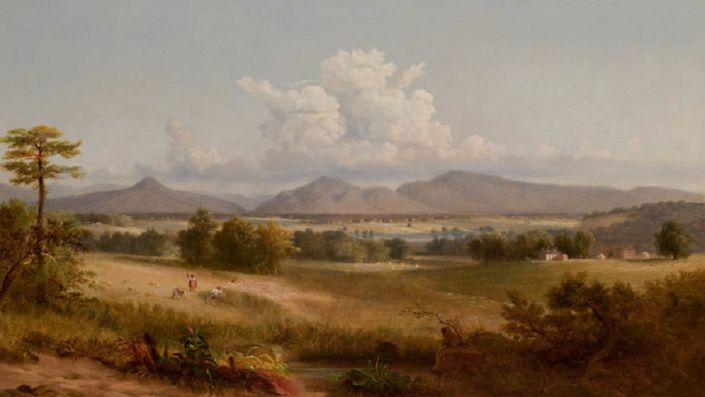
Southern Cultural and Intellectual History, Part II
1790-1865
The South has a rich cultural and intellectual heritage dating to the first English settlers in North America, and even earlier in the Southwest and in parts of Florida. This heritage has been relegated to "slavery," "racism," and "treason" by the modern academy. Most college or university courses spend an inordinate amount of time analyzing Southern slavery and little time on the actors that made the South an important and unique--and for a time the dominant--region in American society.
This course surveys the rise of Southern nationalism in the early federal period as a reaction to New England sectionalism, traces Southern cultural, intellectual, and political development through the age of Jackson, and concludes with the independent Confederate States of America and the War for Southern Independence. Southern literature began to flourish in this period, with men like Edgar Allan Poe, Nathaniel Beverley Tucker, and William Gilmore Simms leading the way. This was the age of John Taylor of Caroline, John Randolph of Roanoke, John C. Calhoun, Albert Taylor Bledsoe, and Jefferson Davis. Thomas Jefferson also plays a central role in the development of Southern political thought and is featured in several lectures. Southern naturalists like John James Audubon and John Abbott and travelers like William Bartram provide beautiful descriptions of the natural Southern environment.
You cannot understand American history without understanding the South. This course continues our journey during a difficult though vibrant period in both American and Southern history.
Your Instructor
Brion McClanahan holds a Ph.D in American History from the University of South Carolina. He is the author or co-author of six books, including the #1 Amazon best selling 9 Presidents Who Screwed Up America and How Alexander Hamilton Screwed Up America.
Course Curriculum
-
StartThomas Jefferson: Letter to George Washington on First BUS (1791) (27:12)
-
StartWilliam Bartram: Travels (1791) (27:13)
-
StartGeorge Washington: Farewell Address (1796) (36:46)
-
StartJohn Abbott: The Natural History of the Rarer Lepidopterous Insects of Georgia (1797) (23:02)
-
StartThomas Jefferson: Letter to John Taylor of Caroline (1798) (23:14)
-
StartThomas Jefferson and James Madison: Virginia and Kentucky Resolutions (1798) (23:12)
-
StartThomas Jefferson: First Inaugural Address (1801) (26:30)
-
StartSt. George Tucker: View on the Constitution of the United States (1803) (26:51)
-
StartWilliam Wirt: The Old Bachelor (1814) (28:55)
-
StartJohn Taylor of Caroline: Arator (1818) (30:30)
-
StartSpencer Roane and William Brockenbrough: Richmond Enquirer (1819) (31:18)
-
StartJohn Randolph of Roanoke: King Numbers (1829) (27:27)
-
StartJohn Pendleton Kennedy: Swallow Barn (1832) (35:27)
-
StartAugustus Baldwin Longstreet: Georgia Scenes (1835) (28:50)
-
StartMirabeau B. Lamar and William Barrett Travis: Texas (1836) (23:11)
-
StartNathaniel Beverley Tucker: The Partisan Leader (1832) and A Discourse on the Genius of the Federative System of the United States (1838) (23:52)
-
StartJohn James Audubon: Early Settlers Along the Mississippi (1839) (21:39)
-
StartAbel P. Upshur: A Brief Enquiry into the True Nature of Our Federal Government (1840) (32:52)
-
StartEdgar Allan Poe and William Gilmore Simms: Poetry (1845-1860) (31:45)
-
StartJohn C. Calhoun: Disquisition on Government (1851) (37:19)
-
StartAlbert Taylor Bledsoe: Liberty and Slavery (1856) (46:36)
-
StartRobert Toombs: Speech to the Georgia Legislature (1860) (30:15)
-
StartJefferson Davis: Farewell Address and Inaugural Address (1861) (27:56)
-
StartConfederate States of America Constitution of 1861 (23:13)
-
StartConfederate States Government: Report of the Committee on Foreign Affairs and South Carolina Declaration of Causes (1860-61) (37:20)
-
StartSouthern War Poetry: 1861-1865 (24:33)
